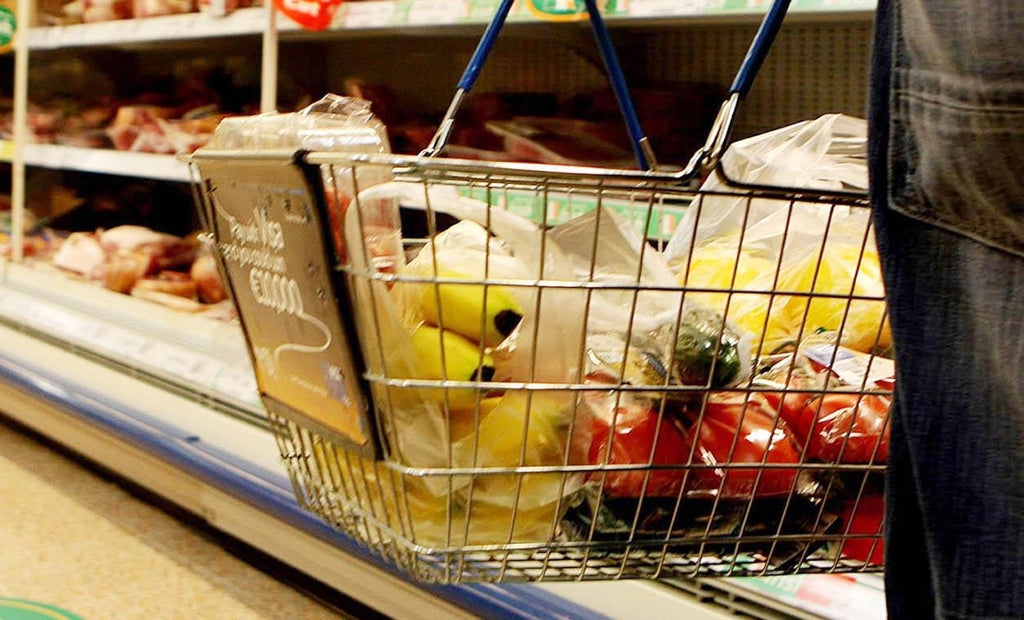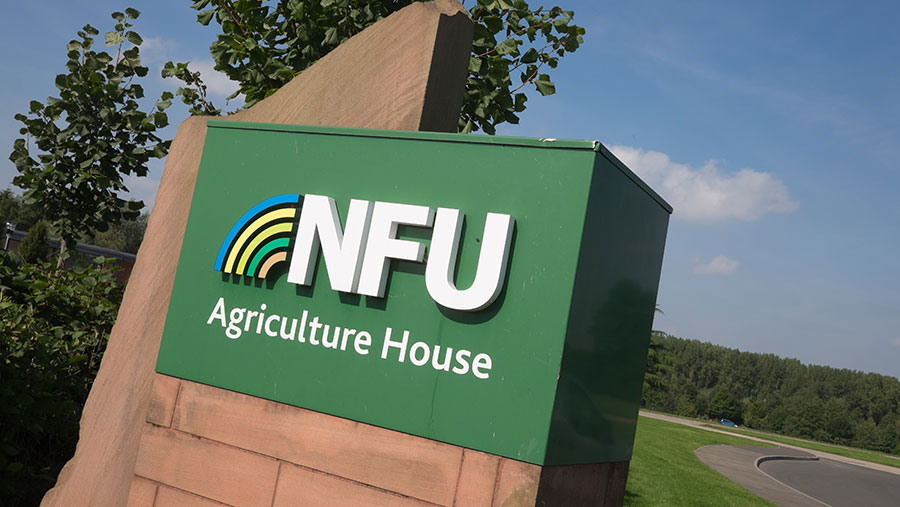[ad_1]

UK buyers have been warned they face an extra surge in meals costs as a fivefold improve in fertiliser prices places the nation’s meals manufacturing underneath rising pressure.
Figures obtained by The Unbiased present that gross sales of fertiliser plunged by greater than a 3rd final month, prompting fears of a fall in crop yields that threatens to push up the worth of dairy, lamb, beef and wheat.
The newest information will add to fears about rocketing ranges of meals poverty within the UK after analysis instructed that 2 million individuals have been skipping meals as a result of a “catastrophic” value of residing disaster meant they may now not afford to eat day by day.
Official figures present meals costs jumped 5.9 per cent within the 12 months to March, nearly double the three.1 per cent uplift in state profit funds.
Farmers additionally warned they are going to be pressured into culling their herds this winter if decrease utility of fertiliser means there’s a scarcity of grass for animal feed.
Producers who make up 95 per cent of the UK’s fertiliser provides reported that their gross sales have been down drastically this yr as cash-strapped farmers held off shopping for attributable to excessive costs.
A tonne of ammonium nitrate fertiliser peaked at £1,000 in current weeks, up from a little bit over £200 in June final yr. Fertiliser costs are carefully linked to the price of fuel which has jumped to document highs within the wake of Russia’s invasion of Ukraine.
The worst affected fertiliser suppliers noticed demand down by 70 per cent final month whereas even the very best performers reported a 25 per cent dip in gross sales, in accordance with the Agricultural Industries Confederation (AIC).
The commerce physique stated it “conservatively” estimated that gross sales throughout the business have been down 35 per cent in April, which is an important month for fertiliser utility within the UK. Round half of the yr’s anticipated provide of fertiliser stays unsold, despite the fact that the planting season is sort of over, the AIC stated.
Livestock farmers could also be pressured to cull herd this winter, business specialists warned
(AFP/Getty)
Farmers are actually left hoping that beneficial climate could make up for decrease fertiliser utilization. Others are playing that fuel costs will fall, making fertiliser extra inexpensive. Nevertheless, market costs counsel costs will probably be larger this winter.
Jo Gilbertson, sector lead on the AIC, stated the scenario was “very disconcerting”.
“We usually see peak demand in April. That is uncharted territory for us. Producers can’t maintain making [fertiliser] if there are not any patrons,” he stated.
He urged the federal government to present confidence that will probably be worthwhile producing and shopping for fertiliser at present excessive costs however stated there was a “fixation from ministers that market forces will make things better”.
“It’s political dogma,” he added.
Grass manufacturing for livestock is regarded as underneath essentially the most speedy risk. Dairy and beef farmers would usually apply fertiliser in April to make grass for feed however many have determined to not and are playing on beneficial climate to make sure first rate yields.
That might imply decrease manufacturing of milk and beef stated Jack Watts, agri-food coverage supervisor on the Nationwide Farmers’ Union (NFU).
He warned “it’s inevitable that we are going to proceed to see some inflation in in some key meals merchandise”.
The federal government’s failure to supply readability on the post-Brexit subsidy regime had compounded issues by rising the uncertainty farmers face, Mr Watts stated.
The Agriculture and Horticulture Improvement Board (AHDB) estimates that larger costs for fertiliser, and due to this fact animal feed, will result in a 5 per cent discount within the UK dairy herd this winter.
That suggests an increase in farm gate milk costs, stated David Eudall, an economist on the AHDB. “Some prices will be absorbed however I anticipate a rise in quite a lot of meals costs is coming,” he stated.
“Much less utility of fertiliser now within the spring will inevitably impression on manufacturing.”
Arable farmers sometimes purchase some fertiliser months prematurely however that buffer is anticipated to expire quickly
(PA)
Arable farmers are anticipated to start being extra severely impacted this winter, when provides of fertiliser constructed up final yr are absolutely depleted. That may danger pushing up wheat costs past present document ranges.
Matt Culley, an arable farmer primarily based within the southeast of England, stated he had been pressured to chop again fertiliser utilization by round 25 per cent to cut back the chance that he’ll lose cash on this yr’s crop.
He referred to as on authorities to supply certainty on fuel costs and transparency on the price of fertiliser. Whereas the costs farmers can cost for wheat and different agricultural commodities are seen months into the long run, the quantity they have to pay for fertiliser is just not.
“In the mean time, I’ve to gamble on what the worth of fertiliser will probably be subsequent yr after I solely have visibility of the worth proper now. That worth can change on a every day or weekly foundation,” stated Mr Culley.
“You take an enormous gamble with your enterprise. We shouldn’t have to do this.”
He warned of a big drop-off in yields of arable crops subsequent yr at a time when present shares of grains and fertiliser will probably be depleted.
“The potential for all of this manufacturing to fall off is very large,” he stated. “Issues are dangerous this yr however subsequent yr will probably be worse. We’re going into it with none resilience.”
Tim Lang, professor of meals safety at Metropolis College, stated the UK now had a “main disaster” in its agricultural industries.
“It’s an emblem of a wider disaster of vitality costs that’s affecting thousands and thousands of individuals.
“We now have rocketing meals poverty and George Eustace, the secretary of state, is simply blithely not . It’s astonishing.”
“What we’re seeing is the vulnerabilities of a fossil fuel-dependent meals financial system being completely uncovered.”
The Division for Atmosphere, Meals and Rural Affairs (Defra) declined to remark.
[ad_2]
Source link














